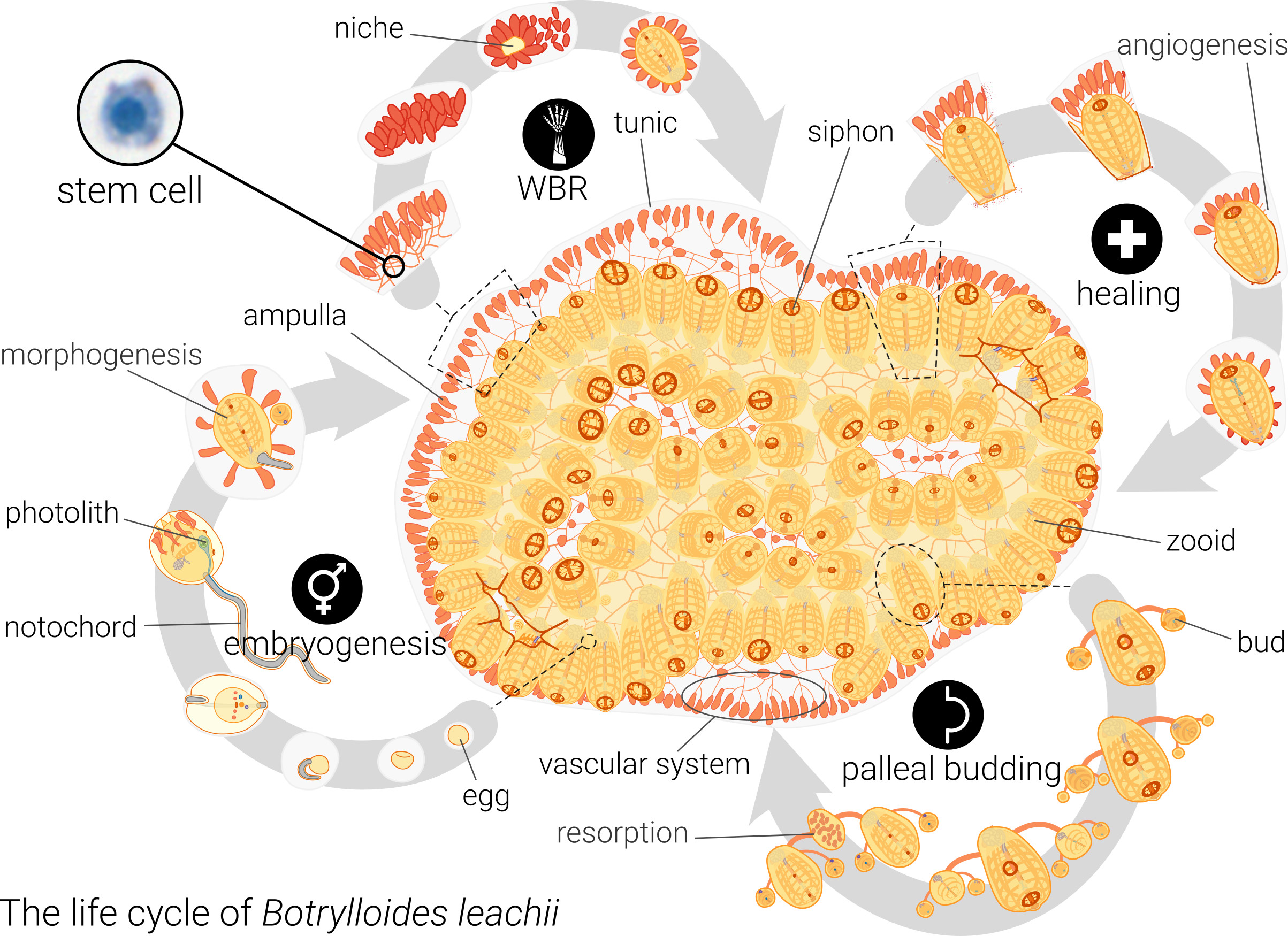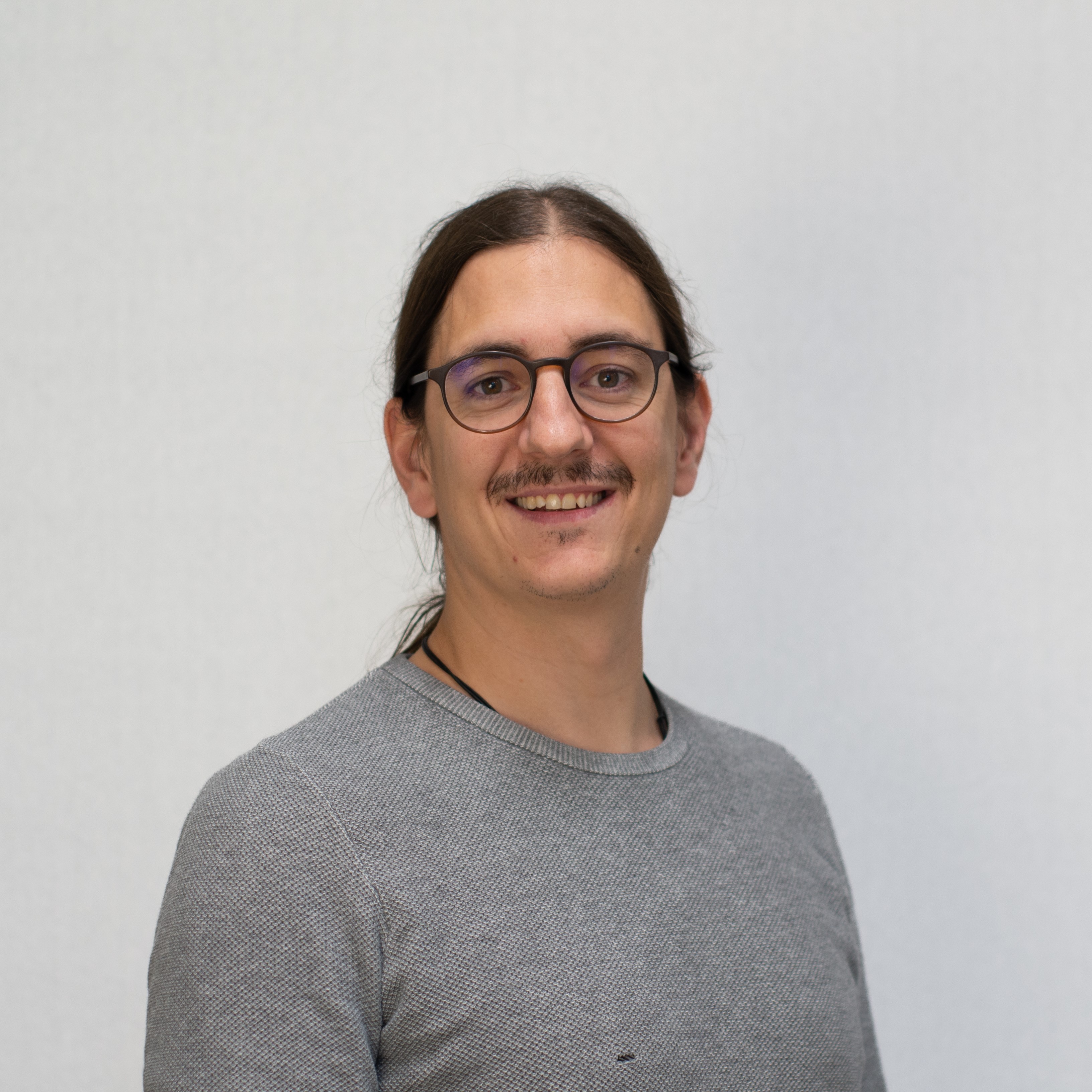Whole-body regeneration in Botrylloides diegensis
Botrylloides diegensis is a worldwide viviparous hermaphroditic marine sessile invertebrate that has organs as well as a tissue complexity related to that of vertebrates. B. diegensis belongs to the Tunicata phylum, the closest phylogenetic relative to the vertebrates. B. diegensis colonies develop through asexual reproduction by budding where adult animals, known as zooids, remain interconnected by their external vascular system. In addition, Botrylloides are the only known chordates that can undergo whole-body regeneration (WBR) throughout their adult life. Consequently, Botrylloides have three different developmental processes leading to the formation of the same adult animal.
In addition to this rather exceptional characteristic, colonial tunicates have emerged as model organisms for an increasing number of research fields, including immunobiology, allorecognition, angiogenesis and aging. Altogether, Botrylloides are thus particularly relevant to answer a wide range of scientific questions owing to their unique phylogenetic position, their genetic as well as phenotypic diversity, and their extensive regenerative capacity. Its study could thus unravel novel lines of research towards the reactivation of similar regenerative processes in vertebrates.
Our lab is fascinated by these colonial invertebrates and by virtually every aspect of their life cycle. We are also particularly involved in popularizing these animals as model organisms. As a first step towards a more widespread use of Botrylloides in laboratories, we have developed the first in-lab husbandry setup for colonial tunicates which allowed us to establish the first in-land lab working on Botrylloides, here in Fribourg.
Work in our lab includes, but is not restricted to, the following topics: whole-body regeneration, WBR regulation, asexual reproduction, colony migration, transgenesis, horizontal gene transfer, taxonomy and histology.
Want to know more about these amazing animals? Want to join our efforts in studying them? Please contact us!


